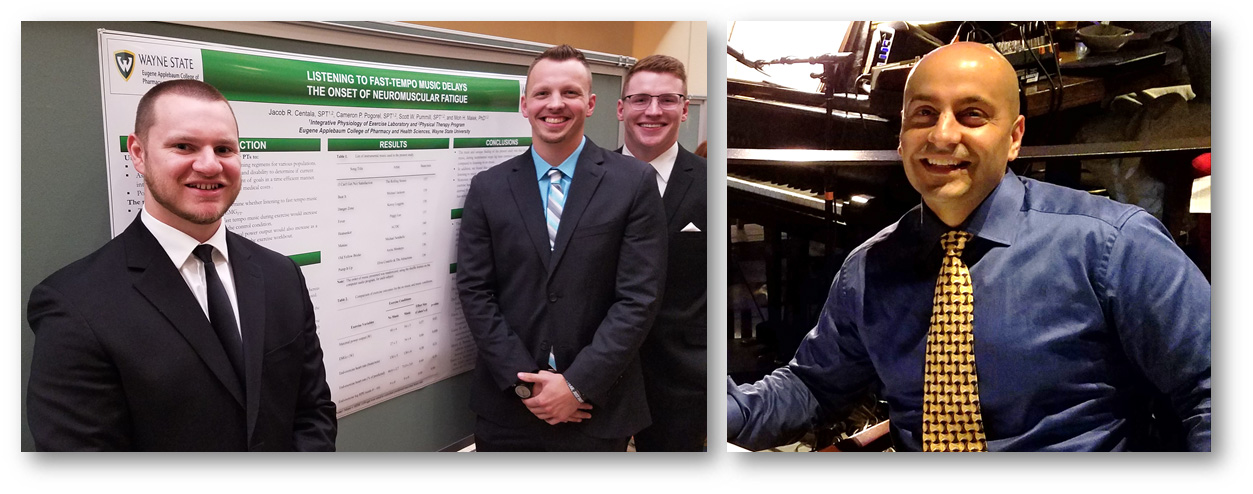Wayne State PT student research project first to examine music’s effect on electromyographic fatigue threshold

Wayne State Doctor of Physical Therapy graduates Jacob Centala, Cameron Pogorel and Scott W. Pummill, along with faculty mentor Associate Professor Moh Malek, had their student research project, “Listening to Fast-Tempo Music Delays the Onset of Neuromuscular Fatigue,” published in the Journal of Strength and Conditioning Research. The group works in the WSU Applebaum Integrative Physiology of Exercise Laboratory.
The group’s study aimed to determine whether fast-tempo music attenuates neuromuscular fatigue as measured by electromyographic fatigue threshold (EMGFT) using surface EMG on the thigh muscle. While previous studies determining the effect of music on physical performance have primarily focused on outcomes such as running time to exhaustion, blood lactate or maximal oxygen uptake, this is the first study to examine the role of fast-tempo music on neuromuscular fatigue for dynamic exercise.
During the experimental visits, subjects would either listen to fast-tempo music during the exercise testing session or listen to no music. The test conditions were randomized for each of the ten subjects. All subjects listened to the same group for music spanning different genres and ranged in tempo from 137 to 160 beats per minute.
Their findings indicated that listening to fast-tempo music during exercise increased maximal power output and overall exercise tolerance, as well as the neuromuscular fatigue threshold. The results are applicable to both sport and rehabilitative settings. In either scenario, listening to fast-tempo music during the exercise workout may, in part, distract the individual from the perception or sensation of fatigue. This, in turn, may allow the individual to continue performing the exercise workout or rehabilitation session without stopping.

